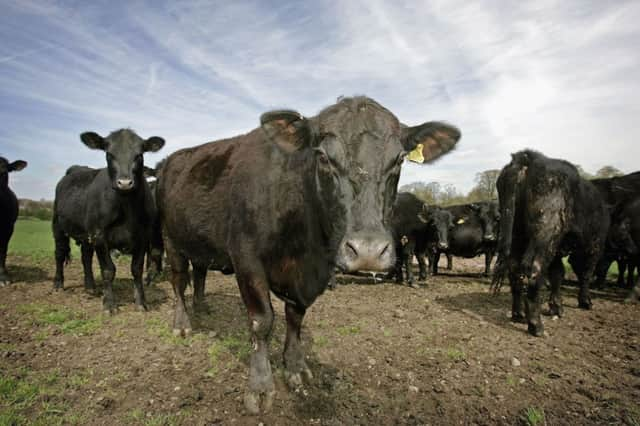Agricultural review mired in difficulties


The Scottish Government was concerned the Agricultural Holdings (Scotland) Act 2003 failed to deliver its objective – increasing the amount of letting land. Its response was the creation of the Tenant Farming Forum which led to reforms such as reduction of the minimum period of a Limited Duration Tenancy to ten years; a new framework for fixed equipment for LDTs and a more comprehensible procedure for tenants to opt out of post-lease agreements to 1991 Act leases. Further proposals by the TFF on fixed equipment issues, compensation, diversification, assignation and succession are expected.
The government committed to further review, resulting in establishing the Agricultural Holdings Legislation Review Group in 2011.
Advertisement
Hide AdAdvertisement
Hide AdThe group’s aim is to determine changes required to achieve the government’s vision of a dynamic tenant farming sector.
Its objectives were to:
• Examine the impact of legislation on tenant farming.
• Examine the impact of industry initiatives and interventions on tenant farming.
• Determine whether the legal framework is conducive to letting land and encouraging new entrants.
• Identify where changes to policy and legislation are required.
• Examine the extent to which fiscal measures could be developed to encourage succession and lettings to new entrants.
• Examine Absolute Right to Buy for traditional tenancies
• Make recommendations to increase opportunities for tenants and new entrants to gain access to farmland.
The interim report was unveiled in June. It sets out the group’s vision for a sustainable tenanted sector; what it has learned from its research into tenure arrangements and changes therein between 2000 and 2013; the performance of farms held in different types of tenure; recent cases brought before the Land Court and what can be learnt from other countries.
The meat of the report (apart from ARTB) is in Section 9 where the Group highlights areas it will focus on namely: The establishment of an effective framework for 1991 Act tenancies; the creation of a framework to stimulate other arrangements; the need to ensure a supportive, wider crosscutting context.
Advertisement
Hide AdAdvertisement
Hide AdThe group identified areas of dissatisfaction in 1991 Act tenancies, the resolution of which it considers essential. These are:-
• Rent and Rent Reviews – the Group will explore the basis of rent review; whether it should be linked to the agricultural value of holdings and the implications of creating a rent register and an independent review system.
• Investment – the need to find ways to allow landlords and tenants to invest.
• Improvements, Compensation and Waygo – there is a need for clarity; should a moratorium be introduced for past improvements?
• Releasing Land – measures are needed to release land to new tenants.
• Succession – Should rights of succession be widened?
• Assignation – can open market assignations provide solutions, whilst maintaining a balance between landlord and tenant?
• Pre-emptive Right to Buy – should all 1991 Act tenants have an automatic right when the landlord proposes to sell?
• Fulfilling Landlords’ and Tenants’ obligations in 1991 Act tenancies – a balance of sanctions is needed where either fail to meet their responsibilities, including, potentially, the ability of tenants to acquire the holding.
Advertisement
Hide AdAdvertisement
Hide AdThe group will consider frameworks to stimulate other tenancy arrangements including: New Letting Vehicles – the aspiration is a range of options for business needs and circumstances, including a reappraisal of LDT and SLDT, possibly introducing repairing leases for reduced rent; New Entrants – measures are needed to encourage new entrants; to facilitate the retirement of established tenants and to create incentives for landlords and new tenants.
In the wider, crosscutting context two issues emerged: Landlord-Tenant Relations – If the sector is “broken”, this is due, primarily, to failed landlord-tenant relationships. Can the sector and the government can improve relationships by codes of practice and mediation? and Taxation and CAP – Can the tax system, financial support and incentives be designed to be neutral or encouraging to the letting of land ?
The report considers what is driving right to buy; its implications on the availability of land now and in the future, on ownership interests and land values and the wider implications.
There are many squares to be circled, not least the difficulties surrounding right to buy, and whether it will be possible for the group’s recommendations to meet with the industry’s wholesale approval.
• Adèle Nicol is a partner in the rural business and agriculture team at Anderson Strathern. www.andersonstrathern.co.uk
SEE ALSO